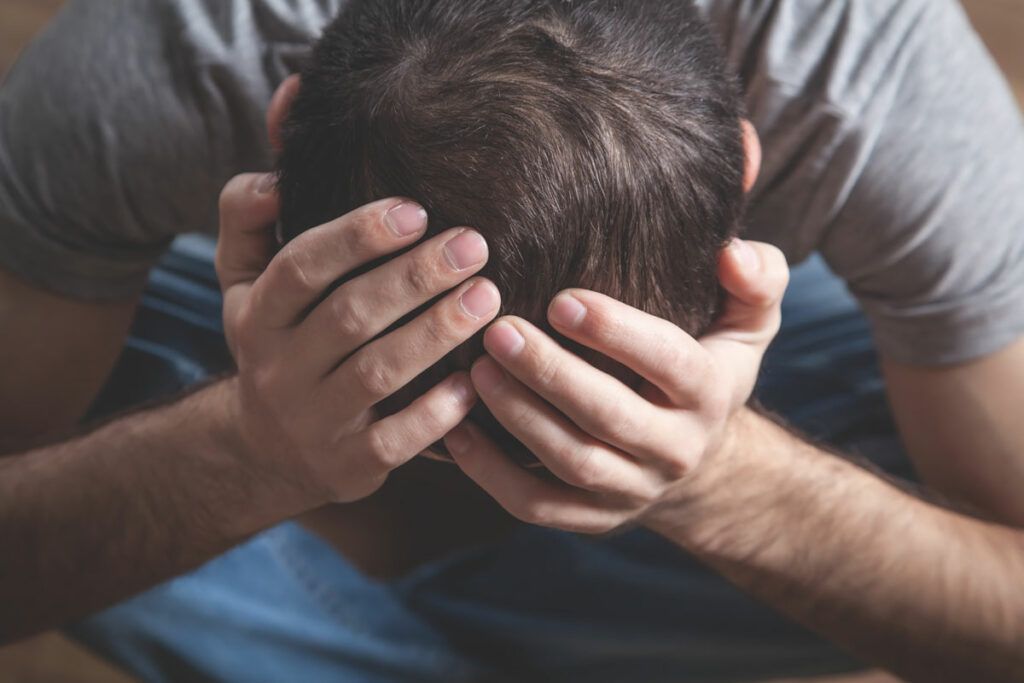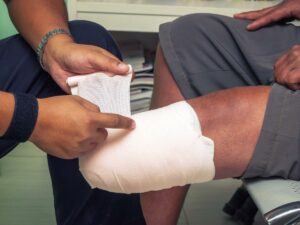What Are The Warning Signs Of An Acute Mental Health Episode?
It might not be obvious if someone you know is suffering from a mental health condition or considering suicide, but there can be warning signs:
- Has their behaviour become erratic or are they having mood swings?
- Are they withdrawing from life and displaying no interest in socialising or engaging?
- Are they being self-destructive or wreckless?
- Do they talk about feeling trapped or hopeless?
- Are they saying goodbye to people as if they won’t see them again?
- Do they talk about “ending it” or say it would be better if they weren’t here, or they wish they were dead?
- Have they obtained means to take their own life, e.g. bought pills?
What to do if you suspect someone is suffering an acute mental health episode
First and foremost you must ensure your own safety – people who are mentally unwell can be spontaneous in their behaviour and may be a risk to you as a first aider.
You may also want to talk to the person, to try and find out if they are in immediate danger of acting on any possible suicidal thoughts.
Ensure they’re in an environment that makes them feel safe. You need to remember that it is not your role to diagnose a mental health condition – your role is to ensure your safety and the patient’s safety. It is also to make a decision on whether the ambulance is needed to attend, or if it’s more appropriate for a family member or the patient’s doctor to attend.
The most important thing to remember is that the patient may not be thinking in a manner that they would normally think – their actions may be unusual, spontaneous without logic or even threatening to you or others.
While waiting for professional assistance it can help to engage in conversation, if the patient is open to this. Some patients may be unwilling or unable to communicate with you, in these cases just being there can actually help them.
Let them know that you are genuinely concerned for them, but remember that you are not a trained counselor, and as such should not attempt to diagnose or make judgements on what the patient should or shouldn’t do. Your role is simply to listen and show empathy for them.
If at any stage you are concerned for your own safety or the patients safety, you should call for police and an ambulance, if they have not been summoned already.
When speaking to someone who is suspected of suffering an acute mental health episode, remember:
- Always put your own safety first
- The patient may not be of sound mind so reasoning with them might not be possible
- Never argue with the person
- Simple reassurances such as ‘don’t worry’, ‘cheer up’, ‘you have everything going for you’ or ‘everything will be alright’ WILL NOT HELP
- Don’t use guilt or threats to prevent suicide
- Be sure that your body language shows you are interested and concerned for them
- Be supportive and be a listener – silence is absolutely OK. Be patient and give them time
How to respond when talking with a person who is suspected of suffering an acute mental health episode
The first aider needs to:
- Accept what the person is saying without agreeing or disagreeing – it’s important they don’t feel judged
- Show you are listening by repeating back to the person what they are saying
- Clarify important points so they know you understand
- Express empathy for the suicidal person
- Suggest it might be worth chatting to someone before they make a decision
Where to get help
Lifeline. This is a 24-hour crisis support and suicide prevention telephone hotline who can assist you and help you to get the support you need. Call 13 11 14 to talk to a trained counsellor.
Beyond Blue. This is another support service that offers one-on-one chats with a trained mental health professional. Call 1300 22 4636 24/7.






